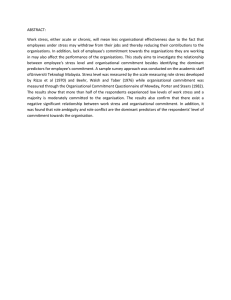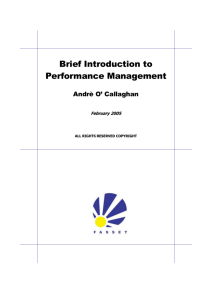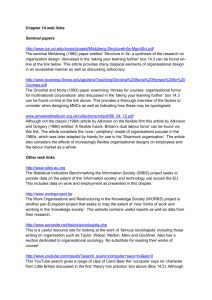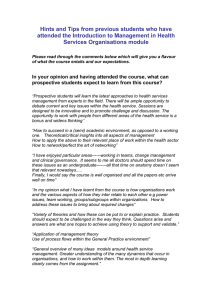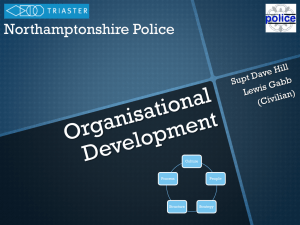Paul Doherty
advertisement
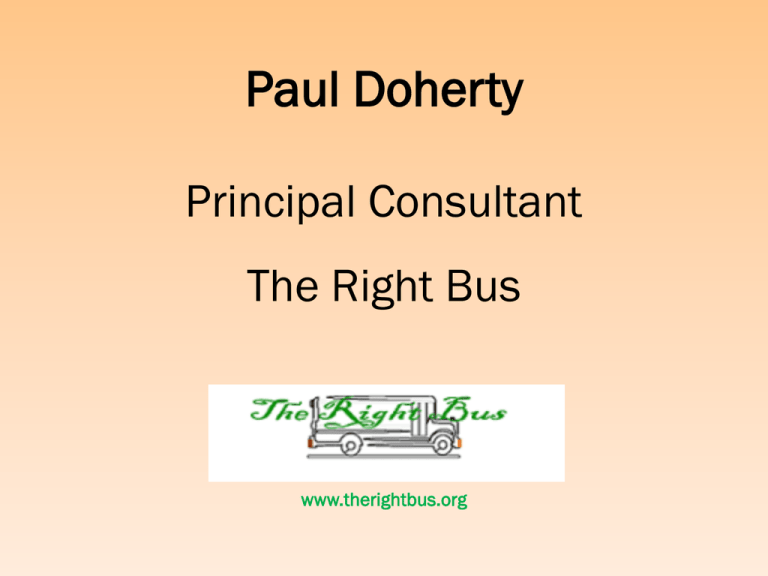
Paul Doherty Principal Consultant The Right Bus www.therightbus.org The Right Bus is a not-for-profit consultancy that provides organisational development support for community, voluntary and public sector organisations, both in Ireland and overseas. Its mission is to ensure that values-based organisational commitments are advanced through excellent organisational practice. Concern about global social justice Childhood experiences in a residential community in the UK which included refugees from the Biafra conflict in Eastern Nigeria Volunteer work and participant observation with community development and health projects in India, Sri Lanka and Nepal Decision to work in overseas development Study of social anthropology (M.Phil on obstacles to democratic development in Rajhasthan) Qualification as a Registered General Nurse (RGN) (Staff nurse in paediatrics) Work as a Health Education Training Officer (Experience in structured experiential group-work) South Lalitpur Community Development and Health Project - Malta Panchayat Initiative Coordinator (Pilot community education initiative) Surkhet Project - Community Development Specialist (Community education and institutional development project) Oxfam UK/Ireland - Country Representative for Nepal (Nationwide NGO capacity building programme; support for the Bhutanese refugee population [85,000]; flood rehabilitation) Ireland Cuan Mhuire, Bruree – Nurse/Group Worker (Alcohol and drug rehabilitation) Avondhu Development Group – Programme Manager (Local Development Partnership) Return to academia Questions from practice... What are the reasons for organisational ‘hypocrisy’? What are the capacities and supports needed for participatory democratic governance? Faculty of arts scholarship/consultancy The Social and Health Education Project (SHEP) Director Capacity building for personal, community and organisational development... Training and development (short community courses, long central courses, UCC Diploma in Social and Psychological Health Studies) Therapeutic support (Coiscéim Counselling Service, Cork Advocacy Service, therapeutic group-work) International partnership (funding and technical support for related organisations in the Majority World) How did having a Ph.D. help? It helped establish trust in my leadership on the part of 200+ personnel. It helped to secure access to, and credibility with, funders and policy makers. It helped the organisation to provide assurance concerning the academic grounding of its various training courses. It provided a theoretical underpinning for the initiation of important new programmes (including the training and deployment of a panel of organisational development mentors). How does a Ph.D. help with independent consultancy?... It provides theoretical insights that support my work with client organisations (especially in relation to governance). It gives me an edge – clients assume a level of expertise and are more open to commissioning me and engaging seriously with my recommendations. It creates opportunities for ongoing links with academia (lecturing, external examining, etc.) which enable me to keep up to date and to consult with experts in different academic fields. Some tips regarding job hunting... Be careful not to get pigeon-holed as an ‘academic’. Your Ph.D. is a background asset; not your defining feature! Show how doing a Ph.D. has equipped you to manage a complex ‘project’. It demonstrates your capacity to apply yourself over an extended period of time, your ability to work on your own initiative, your ability to clearly order your thoughts, your ability to plan, your skill in capturing complex ideas in writing and your ability to deliver. Recognise the value of research to many employers. There is a growing emphasis on organisational learning and action research. Some tips regarding job hunting... (contd.) Recognise that you will probably need to complement your academic studies with experience of practical work before you will be considered eligible for more senior roles. If you don’t already have this experience, be open to accepting relatively low status or voluntary work to position yourself in your chosen field. Don’t sit back and think that your education is now complete. Recognise the importance of ongoing work-related training. Never feel that a job is not ‘worthy’ enough for a Ph.D. Many of the most valuable jobs are not high status or well rewarded. Whether or not you move quickly into a job, remember that the world badly needs citizens who are capable of thinking clearly and of contributing to positive change. Since many jobs have a negative impact in terms of social justice or the environment, your commitment to a better world may lead you to reject some of the career options that are available to you. However that may be, your most important contribution may well be outside the formal workplace as an engaged citizen-academic. Wherever you find yourself, once you know what is the right direction for you to travel, make sure that you get on... the right bus!
